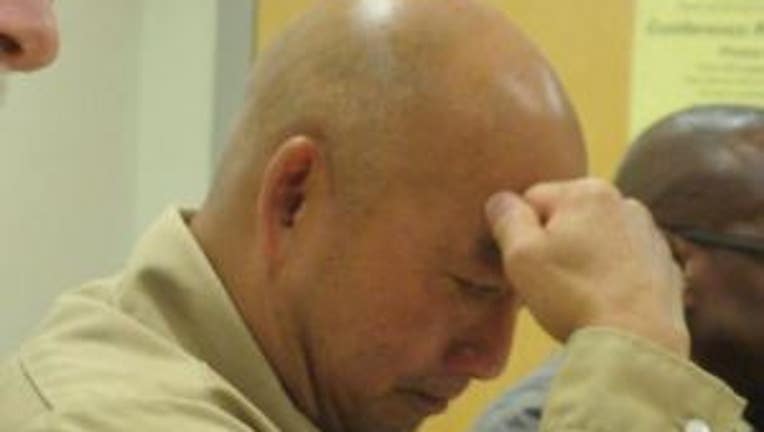Early release an option for man convicted in Seattle's worst shooting

ABERDEEN -- The state’s parole board will take their time deliberating whether to grant an early release for a prisoner convicted in Seattle’s deadliest mass shooting.
Tony Ng is serving the final segment of his sentence for robbery and assault charges in connection with his role in the Wah Mee Massacre.
A total of 13 people were tied up, robbed and executed when Ng, Kwan Fai ‘Willie’ Mak and Ben Ng stormed into the gambling club the evening of Feb. 14, 1983.
In a Tuesday hearing in front of two members of the Indeterminate Sentence Review Board, Ng divulged details of the crime.
He claims he was pressured into being an accomplice because of a debt he owed.
According to those attending the hearing, Ng sweated and appeared nervous while describing the crime. He claims he had no knowledge that people were going to be shot and killed and was equally surprised as the Seattle community when news of the murders surfaced.
Ng said that he fled to Canada after the shooting at the advice of his mother. He said he was relieved when he was eventually captured and admits that it was wrong to leave Seattle.
Mak and Ben Ng were both convicted of murder, but Tony Ng's claims of being forced to tag along with the plan earned him a conviction on 13 counts of robbery and assault with a weapon. He received multiple life sentences with the possibility of parole.
Ng is eligible for release in 2014, but could be released earlier if the board decides.
Joined by his attorney, Ng testified on Tuesday that his 30 years in prison have led to many changes. Ng said he’s excelling at academics, mentoring other prisoners, and has completed anger management classes.
The members of the board commended Ng’s for his nearly spotless prison record. He showed them pictures of artwork he’s been sending to a church in the International District, who in turn has been selling them to raise money for charity.
But the severity of the crime has Indeterminate Sentence Review Board Chair Lynne Delano questioning whether Ng should be released early.
“This is a serious case, I mean the crime was extremely heinous,” said Delano. “The board is probably going to take some extra time deliberating this.”
When asked if he thought the sentence he was given was fair, Ng told the board that if he had committed the murders it would not have been enough. He later pleaded with the board to judge him for what he was sentenced for, not for the murders.
“What we have to remember as a board is that he was not convicted of murder or murders,” said Delano.
Relatives and friends of the 13 people killed in the massacre have participated in Ng’s previous parole hearings. In a 2006 meeting, one man who lost his sister in the massacre said that Ng should stay in prison until his sister comes back. Another man spoke about the emotional trauma of losing his father and having to become the man of the house at a very young age.
Upon his release, Ng will likely be deported back to China, where his father is fighting a battle with cancer.
All members of the Indeterminate Sentence Review Board will discuss Ng’s case at a meeting next September.

